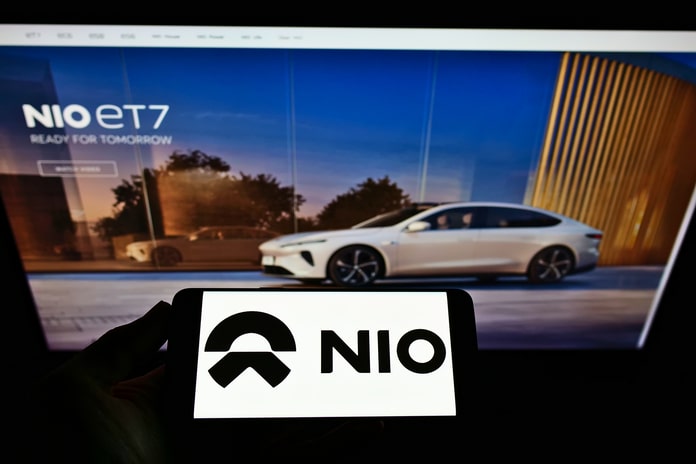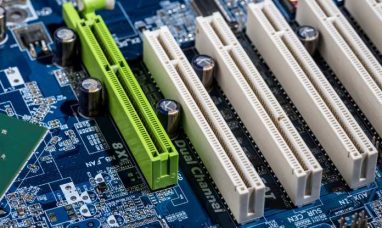NIO Inc.’s (NYSE:NIO) sales of electric vehicles remained above the critical 10,000-unit level in July but fell short of June due to recurrent supply issues. While the multinational automobile manufacturer’s July deliveries increased by 27% year on year, delivery growth in the Chinese electric vehicle market is slowing due to hurdles ranging from production shutdowns to supply chain issues to inflation. The company’s ET7 ramp faced an unexpected delay in July, which may immediately impact its delivery prospects!
A look at NIO’s delivery card for July
NIO, in July, delivered 10,052 electric vehicles, a 27% increase year on year. In its most recent announcement, the manufacturer did not split sales by model but stated that it delivered 7,579 sport utility vehicles, including the ES8, ES6, and EC6. Sedan deliveries, which have only included the ET7, which began in March, reached 2,473 units. Deliveries of the ET5 sedan are slated to begin in September.
Meanwhile, XPeng (NYSE:XPEV) recorded the largest year-over-year delivery growth rates. In July, XPeng delivered 11,524 electric vehicles to its clients, representing a 43% year-over-year increase. XPeng (NYSE:XPEV) also continued to create the most electric vehicles among its competitors. In July, Li Auto (LI) supplied 10,422 Li ONE sport utility cars, representing a 21.3%year on year increase. Delivery growth rates in the Chinese EV market slowed in FY 2022, owing mostly to COVID-19 lockdowns, which exacerbated already-existing supply chain issues.
Although XPeng had the largest year-over-year delivery growth rate, the EV firm also had the steepest month-over-month dip in the delivery volume of 25% but did not blame supply issues. NIO’s deliveries fell 22% month over month, owing primarily to supply concerns.
A new problem for NIO
NIO shipped 4,349 ET7s in June, implying that ET7 delivery volumes fell 43% month over month… which the electric vehicle manufacturer blamed on supply issues with casting parts. A similar issue impacted EC6 production as well.
ET7 production constraints are a major issue for the automobile manufacturer, as the ET7 sedan ramp has been responsible for recent upward momentum in NIO’s delivery increase. The company’s ET7 deliveries increased 154.8% month over month in June to a record 4,349 units. The share of sedan deliveries climbed significantly in the second quarter. The ET7 was critical in reviving itss delivery growth. The ET7 delivery share increased from 2% in March to 34% in June. Unfortunately, due to sourcing issues, this momentum has already been broken. NIO’s ET7 delivery share slipped to barely 25% in July.
The decline in sedan deliveries is a significant setback for the automobile manufacturer since the ET7 ramp has been a rare bright spot in the company’s operations. It stated that it hopes to fix its supply concerns in the third quarter. Still, the decline in ET7 deliveries in July may have a negative impact on the company’s delivery prospects in the short term.
Revenue estimates may start to trend down
NIO’s revenues are still predicted to expand fast in the future, with forecasts now calling for 58% revenue growth year over year in FY 2022 and 76% revenue growth in FY 2023. However, newly revealed supply chain issues now include the ET7 ramp, raised delivery, and top-line risks that were not previously considered. As a result, I expect sales expectations to fall.
Due to chronic supply chain issues and slowing growth, Chinese EV manufacturers were massively revalued in 2022. The automobile manufacturer presently has a P-S ratio of 2.1 X based on FY 2023 sales. XPeng and Li Auto have comparable price-to-revenue ratios but were much more expensive last year, as was NIO.
Risks with NIO
COVID- Consumers and electric vehicle makers must contend with 19 lockdowns, supply chain issues, a probable global economic downturn, and surging inflation. Unfortunately, the automobile manufacturer has revealed a new supply issue affecting its fastest-growing ET7 production line. If NIO can quickly resolve its supply issues, the company’s ET7 production will almost certainly rebound. Its valuation may reflect slower delivery and top-line growth if it does not.
Final thoughts
The reduction in ET7 deliveries and a dropping sedan delivery share pose a new concern for NIO since the ET7 was critical to its rising second-quarter delivery numbers. The supply concerns with the company’s fastest-growing product are a concern that could cause a negative overhang for NIO’s stock in the near future!
Featured Image: Megapixl © Timonschneider

















